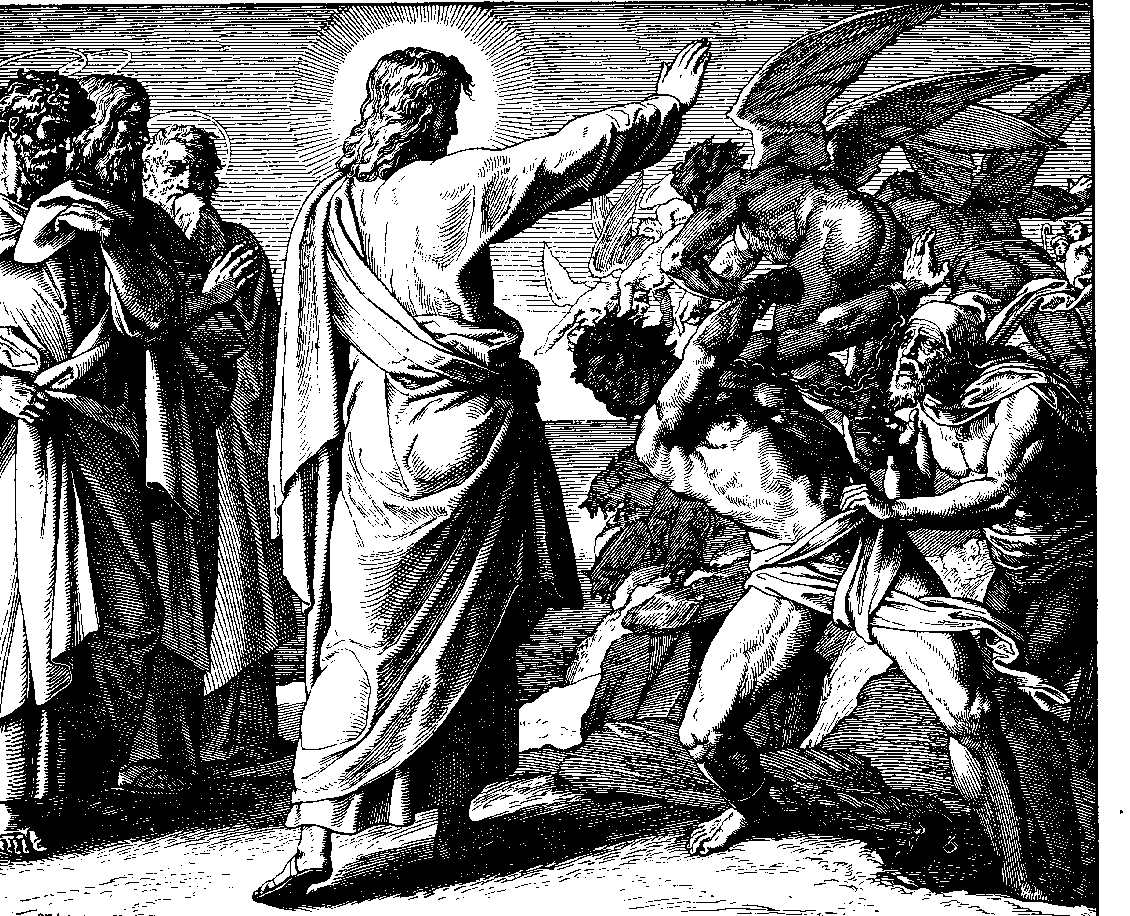| Moses, Aaron and Hur, in battle. |
Before I formed you in the womb I knew you,
before you were born I dedicated you,a prophet to the nations... -Jeremiah 1:5
The popular definition of "a prophet" is something along the lines of a soothsayer, one who can foresee the future or tell fortunes.
Some folks have a slightly different take on the definition of "prophet".
Possessed
There are many instances in the Bible of people possessed by evil spirits. Jesus does a pretty brisk business tossing them out. The victims of evil spirits have limited independent will. They are agents of evil.
But what do you call a person who is possessed by "good" spirits, by the will God? What do you call a person whose entire purpose in life is to be God's agent?
Give the man a cigar. You bet. They are "prophets".
Literary bias
The Bible is, among other things, a literary work. As such, it is biased to capturing words. It is pretty easy to recalibrate from sooth-sayer to "God's mouth piece". That recalibration is given a big boost after one realizes that even folks possessed by evil spirits are capable of fore-telling the future.
The second shove down that path occurs after you realize that not everything prophets foretold happened. That was one of the risks of the prophet business: That the nobs might hear you and repent...thereby saving their city, their nation. Few things make a prophet look like an idiot more than doom, stayed by the hand of God.
Are agents of God restricted to words?
Well, of course not.
Prophets healed and fed and watered and comforted. They turned the sea into dry land. They even went into battle and slew the enemy. Prophets did far more than just talk.
We are all called to be saints and prophets.
To quote Saint Francis of Assisi,
Preach the Gospel always. Use words only when necessary.

No comments:
Post a Comment
Readers who are willing to comment make this a better blog. Civil dialog is a valuable thing.